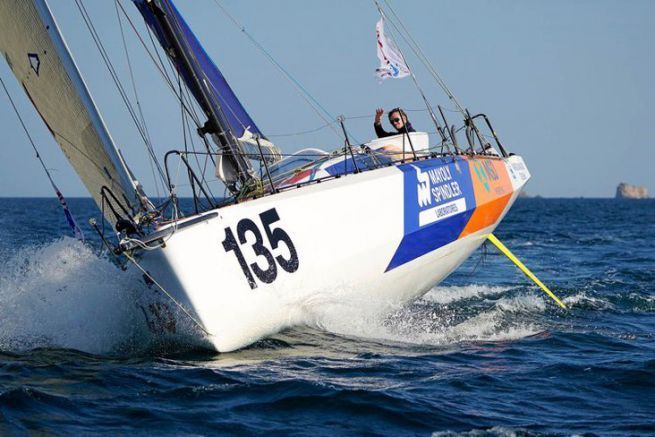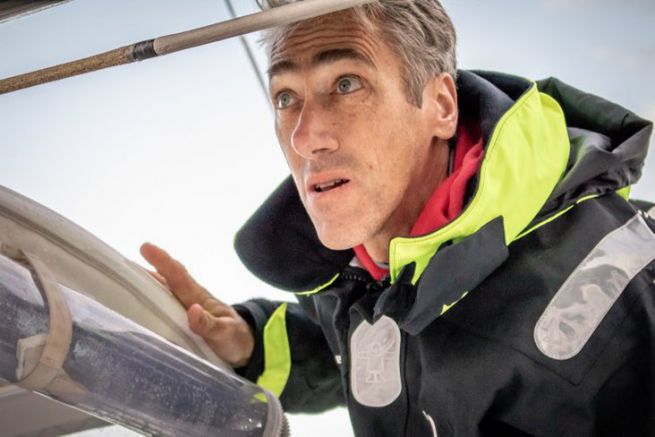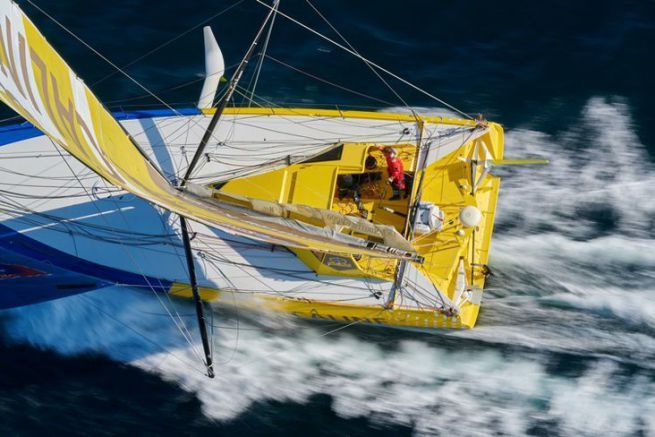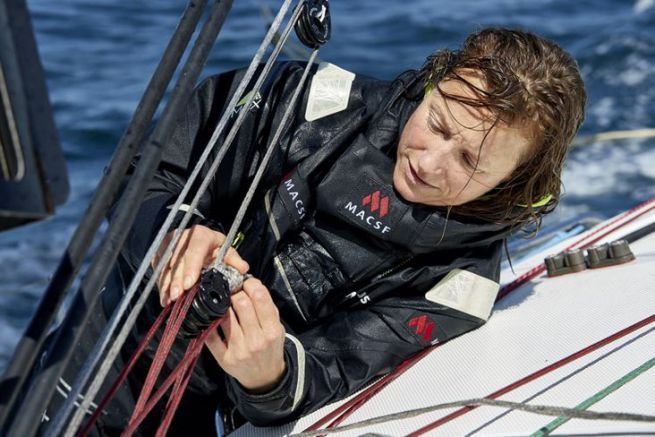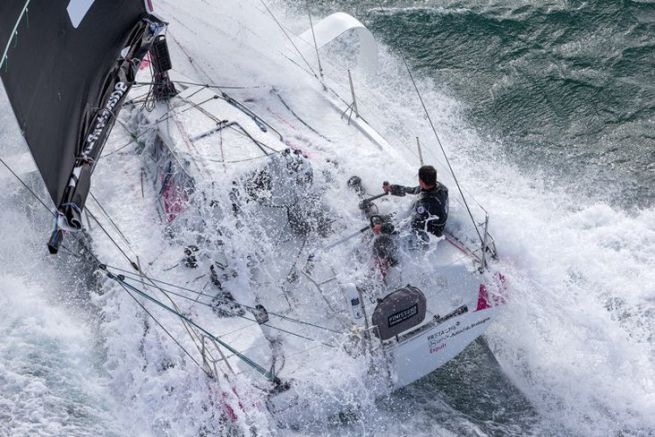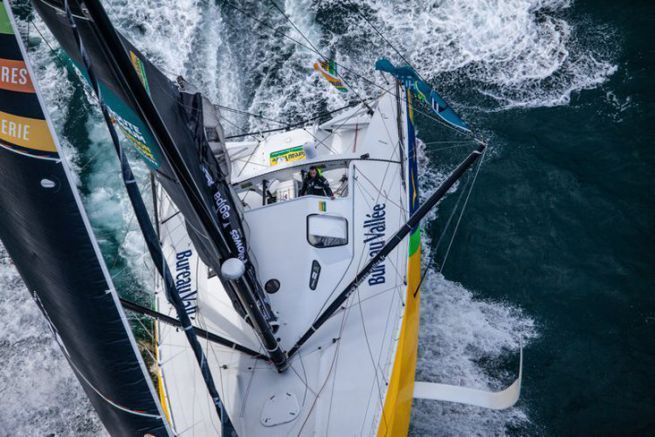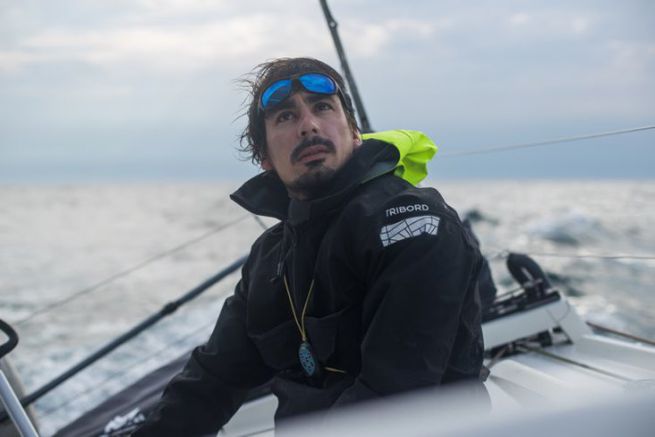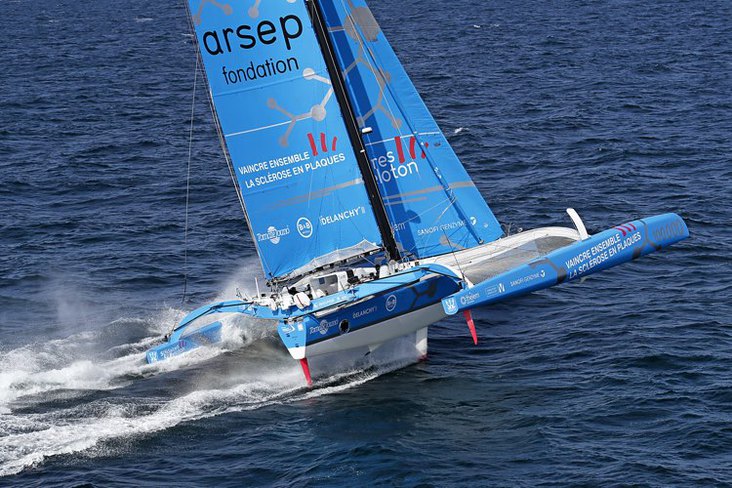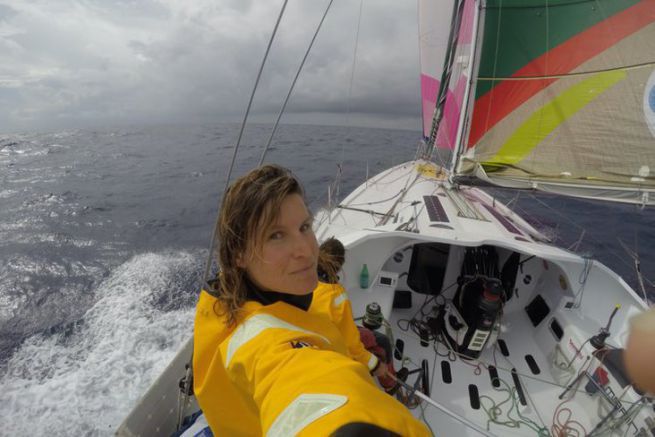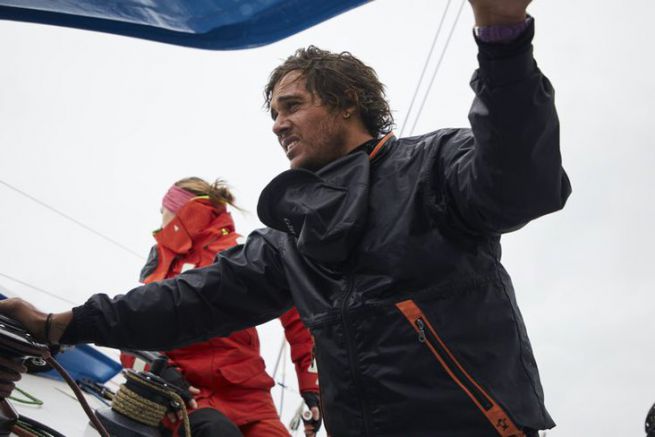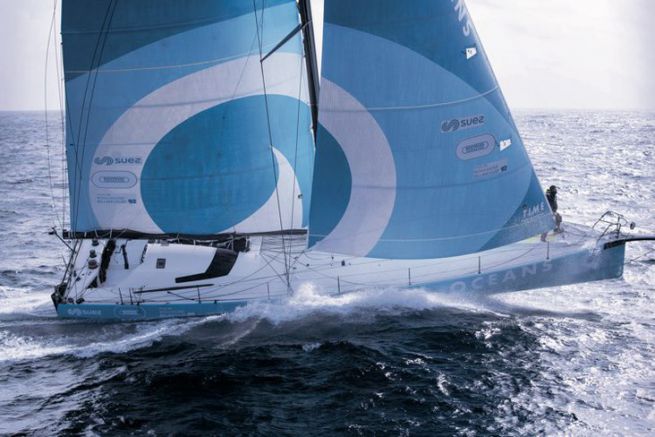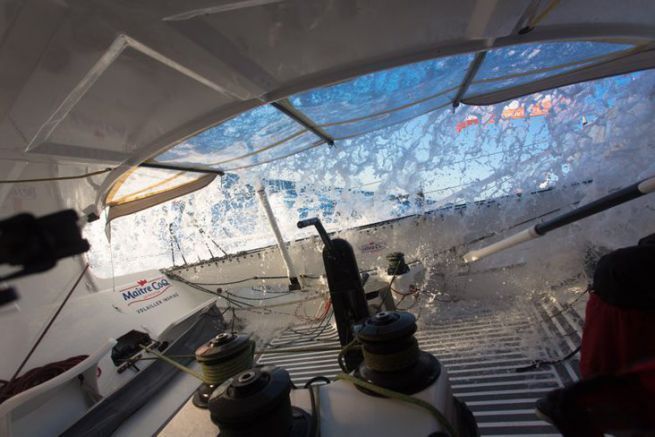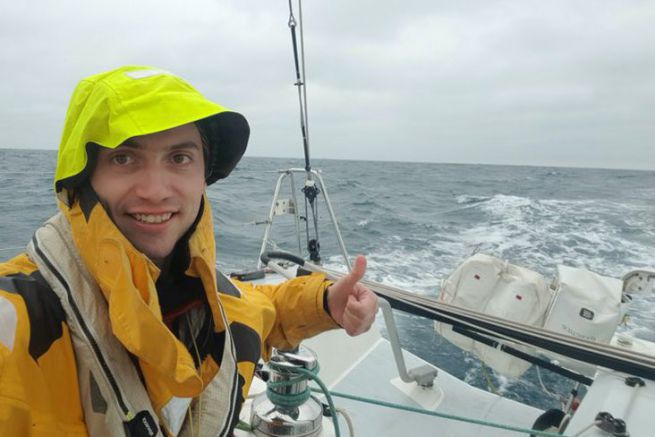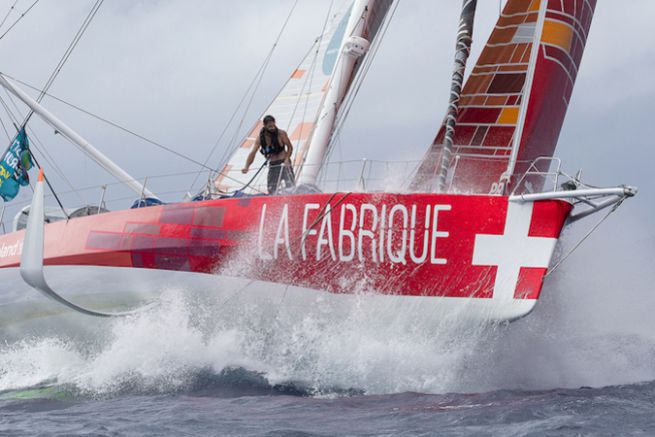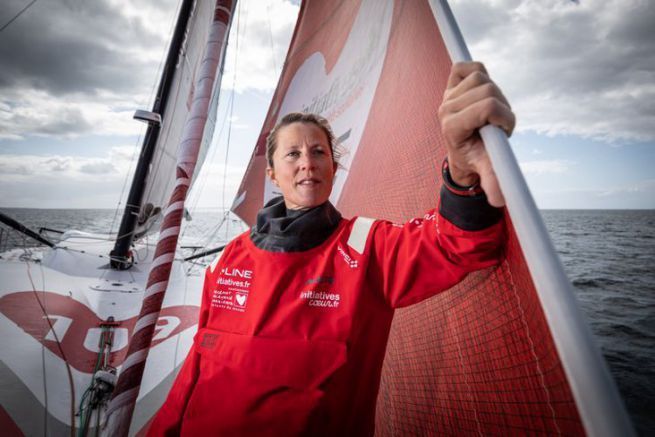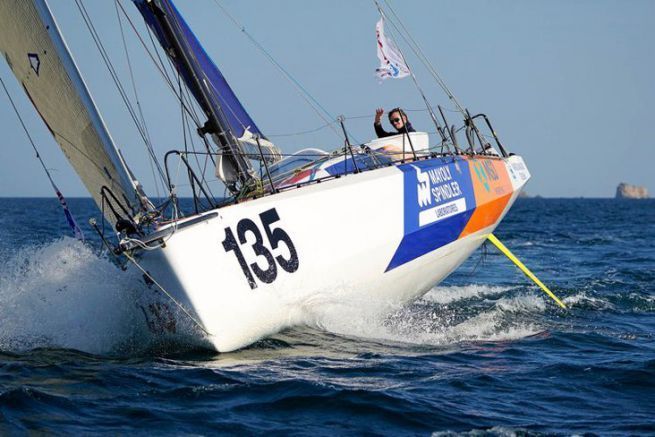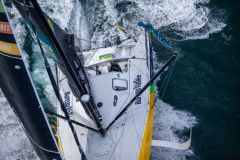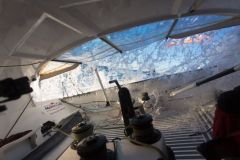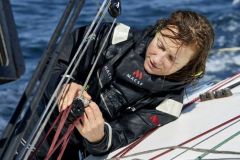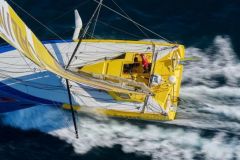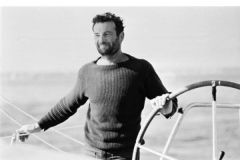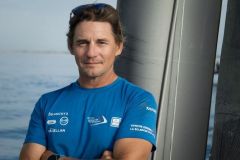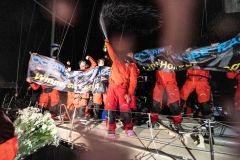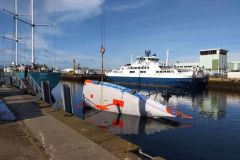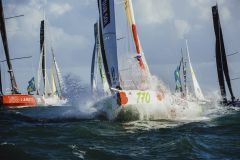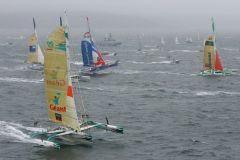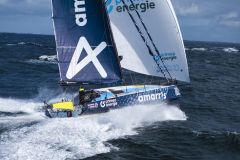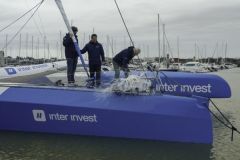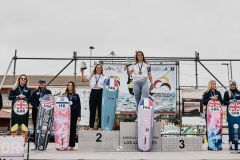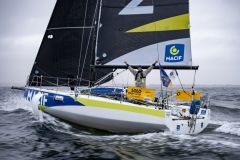As a child, Pierre-Louis, from Lorient, was already sailing with his father. Fascinated, he trained in sailing. In 2017, he launches the Vogue project with a Crohn. Suffering from Crohn's disease for the past 16 years, he fights to make this type of disease better known. Today, at the age of 23, at the helm of his Class 40 #135, he is already preparing his first Route du Rhum... after finishing 11th in the last Transat Jacques Vabre in 2019.
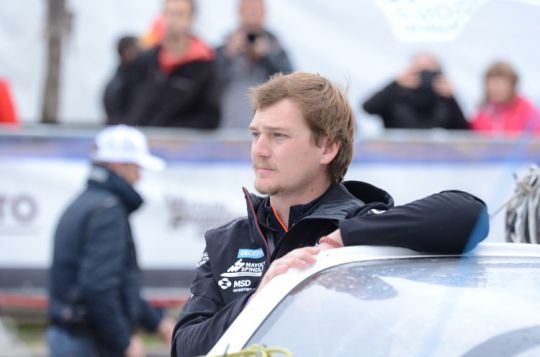
The view
I have a very vivid, incredible memory of the vision. It was during the fourth leg of the Solitaire du Figaro in 2018. I was heading back up towards Saint-Gilles-Croix-de-Vie. And there, I saw the sea becoming fluorescent. I can assure you: fluorescent. It was all the more surprising for me as the view isn't the sense I use most during the races, in any case not as much as on land. On a moonless night, for example, it's not it that can help me guess what's coming my way. So I use other senses... In short, in the water around the boat, bioluminescent plankton has strangely lit up the sea. I thought it was extraordinary! All the more so as the dolphins invited themselves to this unique moment: they were swimming in this light and thus also became phosphorescent... I went to the bow of my boat to admire the show. Incredulous, I rubbed my eyes, but no, it was definitely not an hallucination at all! I was well accompanied by some sort of shooting stars in this vast sea that looked like a sky plunged into an enigmatic night..
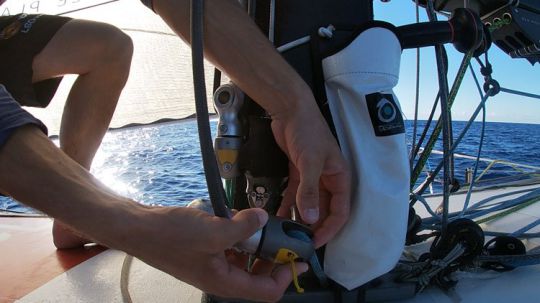
The touch
That sense, as you get more and more involved in ocean racing, gives you more and more abrupt and violent sensations, I find. In the first few days, the boat is clean, the clothes are still fairly soft, the ropes are also softened to keep them supple... But gradually, as the days go by and the weather conditions change, salt and perspiration come to change things: everything becomes rougher and drier. Little by little, the touch becomes harder. My fleece, for example, whose material is very soft at the beginning, after five or six days of racing, is transformed... The mast too. At the start, the carbon fibre from which it is made is perfectly smooth. Under your fingers, it slips. But after a gruelling sail, when the wind and the sea rose, it's not like that anymore: the spray threw salt all over the boat and the sails. And when, once the sailing conditions have calmed down, I'm going to manoeuvre at the foot of the mast, I can feel the storm under my fingers. The roughness it has left. It's been bending my hands, this irregular crust of salt that has settled. As if pebbles had gotten into the mast and the canvas! And these lumps stay there, never come off the whole way. Rubbing to try and get them out is useless. My fingers find them again and feel them more and more, no doubt because as the race goes on, they also become more sensitive, as they get damaged during manoeuvres and with the sea air. Roughness becomes their daily life during the race.
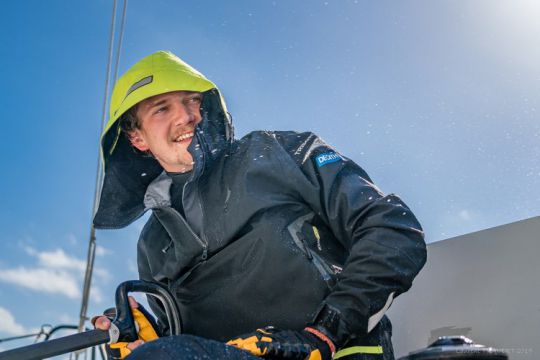
Hearing
That's the most important meaning for me out there. Especially during ocean races. As the days go by, it even takes the place of sight. It shows me the general atmosphere on board. When I'm running double-handed and I'm resting in the cabin, I manage to pick up precisely what's going on... without seeing it! I listen to the rather soft noises coming from the water running against the hull, the one that the autopilot also makes, which tells me whether it's forcing or not, whether the sails are set correctly or not. There are also all the creaks and shrill sounds that increase when more difficult sailing conditions are on the horizon. In fact, I sincerely believe that I listen to my boat more than I look at it! We're also detecting external elements... I remember my first night of double-handed transat very well. My team mate and I were in the cabin and we heard knocking on the deck above. We really wondered what was going on, where this strange sound was coming from and what the problem was. It was in the morning, when we found four or five flying fish on the deck, that we understood! They'd fallen onto the boat and had been struggling for a while, jumping around as best they could. And we had heard them flapping... I'm not sure if that word exists, but it really describes that particular noise!
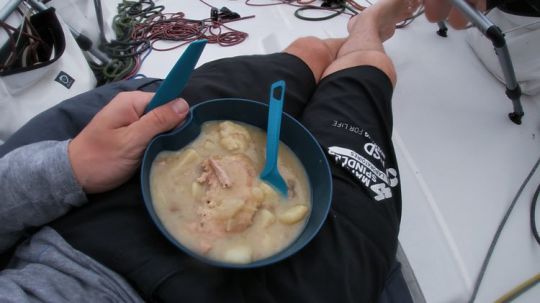
Taste
On board, we eat a lot of freeze-dried and ready-made meals, we don't actually cook! So when I'm running double-handed, there's one moment that I particularly appreciate: it's when I've been at the helm for hours and my team-mate starts to prepare a nice little dish in the cabin, a duck confit, for example... I also remember, on this theme of taste, our arrival in Salvador de Bahia. We were greeted with a platter of succulent local exotic fruits: a real rebirth for our taste buds! Because at sea, on the menu, it's rather starchy, cereal bars... not really fresh products, to tell the truth. And when we have them, it's at the very beginning of the race, and we eat them quickly! Then it's the diet on that side: we spend 15 days without being able to enjoy fresh fruit or vegetables. Then, we resign ourselves and we only dream of having something fresh and juicy in our mouths... When we arrive, apart from the joy of having crossed an ocean, of course, of having finished the race, we suddenly rediscover the intense flavour of these fruits and their juices. Such a tray, it was a real delight for me. I devoured papaya, grapes, peaches, pineapple, watermelon, melon..
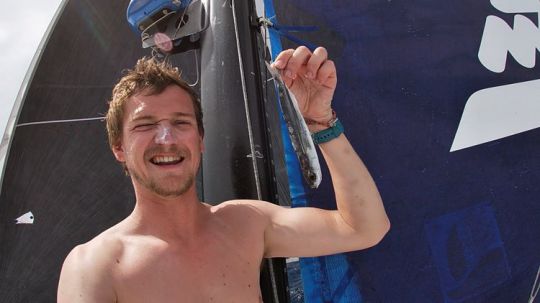
The sense of smell
So far, the most intense smell I've had to breathe on board is that of fish. I'm going back to the steering wheels! Because after I'd picked up the ones that had landed on the deck in the early morning and put them back in the water, it always smelt strong, very strong, of fish. In fact, after three days, we found some that had slipped into the sails or into a tub at the ends, between the ropes... And there it was our nose that led us to find them: a real olfactory treasure hunt! It's not so often that we use our sense of smell so much during a race. Usually, once at sea, you get used to the smell of the open sea, which isn't very varied, it has to be said. You sort of put that sense on hold. So, when, exceptionally, different fragrances come to tickle your nostrils, you can probably smell them more intensely: for example, the fumes that follow the passage of a cargo ship, even if it's already far away, you can smell them very well! In fact all the smells of pollution on land are more intense when you smell them from the sea, I think. I also have more pleasant memories. The scent of the land in particular. We had been on the Transat Jacques Vabre for ten days. We'd reached the Cape Verde archipelago and as we passed through the middle of its islands, I smelled, I felt... difficult, I find, to describe this smell, which I remember being rich and intense! Something very woody, like being in a forest, an undergrowth... As we approached Salvador de Bahia, at the end of the transat, it was the smell of deep, fertile, black earth and its luxuriant forest that filled our nostrils. And then, closer to the coast, at the height of the port, the more humane one of cooking and tempting grills..
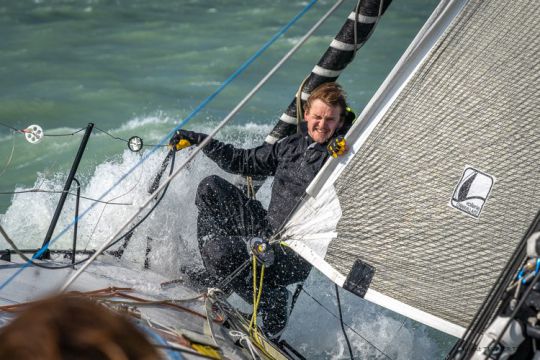
What about fear?
It was during the Transat Jacques Vabre. And that fear was the fear of giving up. Not a panicky fear, not a lightning bolt, but a long-lasting fear, goes on. And linked to energy, almost as vital as the fresh water on board! Let me explain. On our racing boats, energy is supplied by an engine like on a car, but also by other devices: solar panels which require sufficient light and therefore only work during the day; a wind turbine which requires wind and which can be cumbersome and fragile; a hydrogenerator which is a blade turning in the water with the speed of the boat (a sort of underwater wind turbine); and the fuel cell, methanol, which requires this liquid product to be taken on board. Our boat is equipped with this last source of energy. Note that all of them are slow means of production. They deliver a low current intensity and are not designed to recharge the batteries, but only to limit their descent. In short, they are not capable of powering all navigation instruments on their own. Usually, once you've left port, you leave these ancillary means of power generation running, which slows the batteries down. And you leave the pontoon with full batteries. When they drop too low, you run the engine for an hour, which brings the batteries up to 100%. But we left with dead and empty batteries. So they quickly lost their charge. Our fuel cell generated power and slowed down the descent of the batteries, but because they were in bad condition, they were already too low in charge to restart the engine. We therefore had to cut all the instruments on the boat and wait for the battery to recharge at its own pace, i.e. slowly, and for the engine to finally restart! For hours we sailed the old-fashioned way... We took turns at the helm with my team mate. And I have to admit that we couldn't have continued for long in that position. That's when the anxiety grew, really. Honestly, giving up because we broke down is conceivable for me, but because of a battery problem... I can tell you that when, with my team-mate, we heard the engine - yes, it could have been for the hearing, that moment! -, we shouted for joy!
